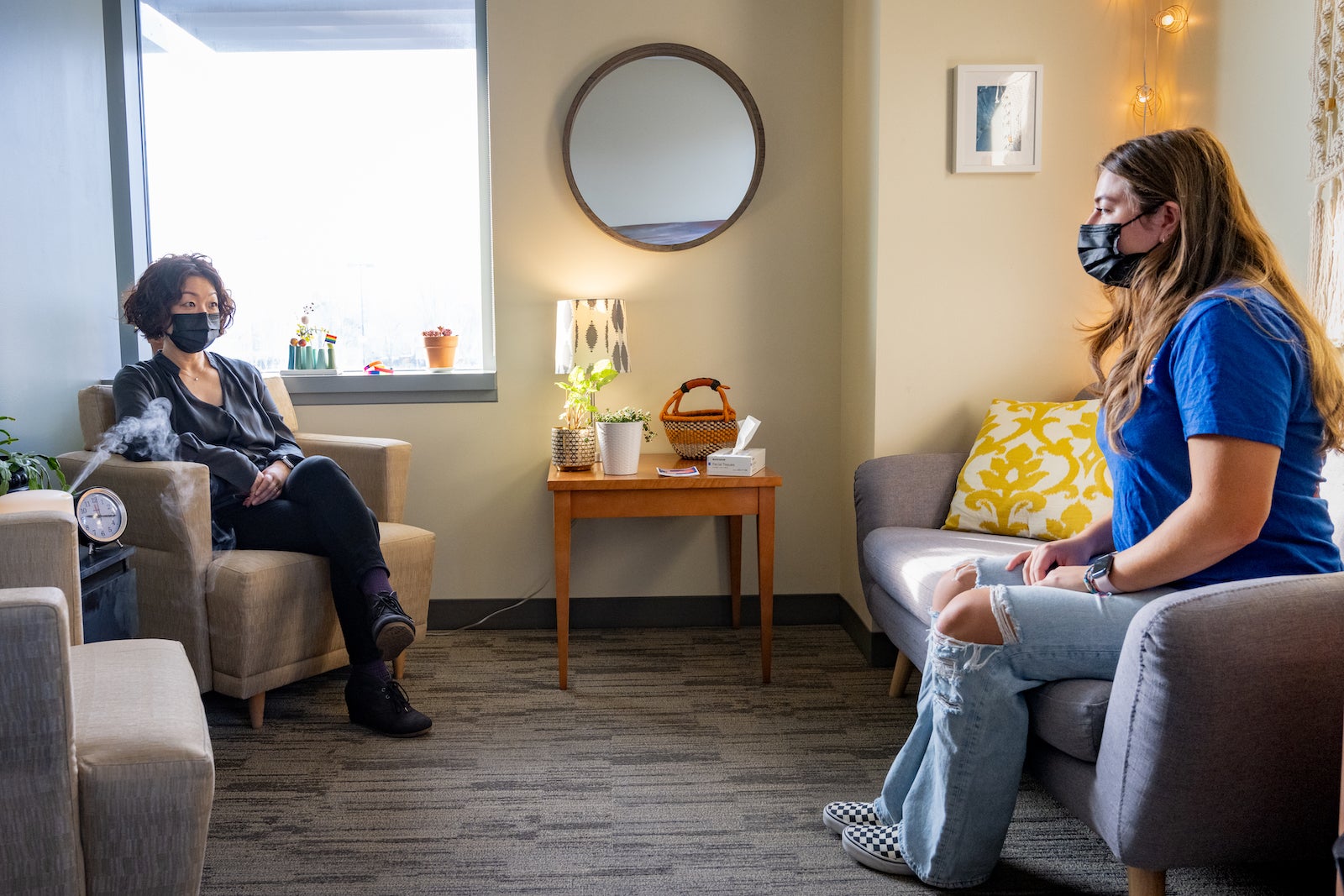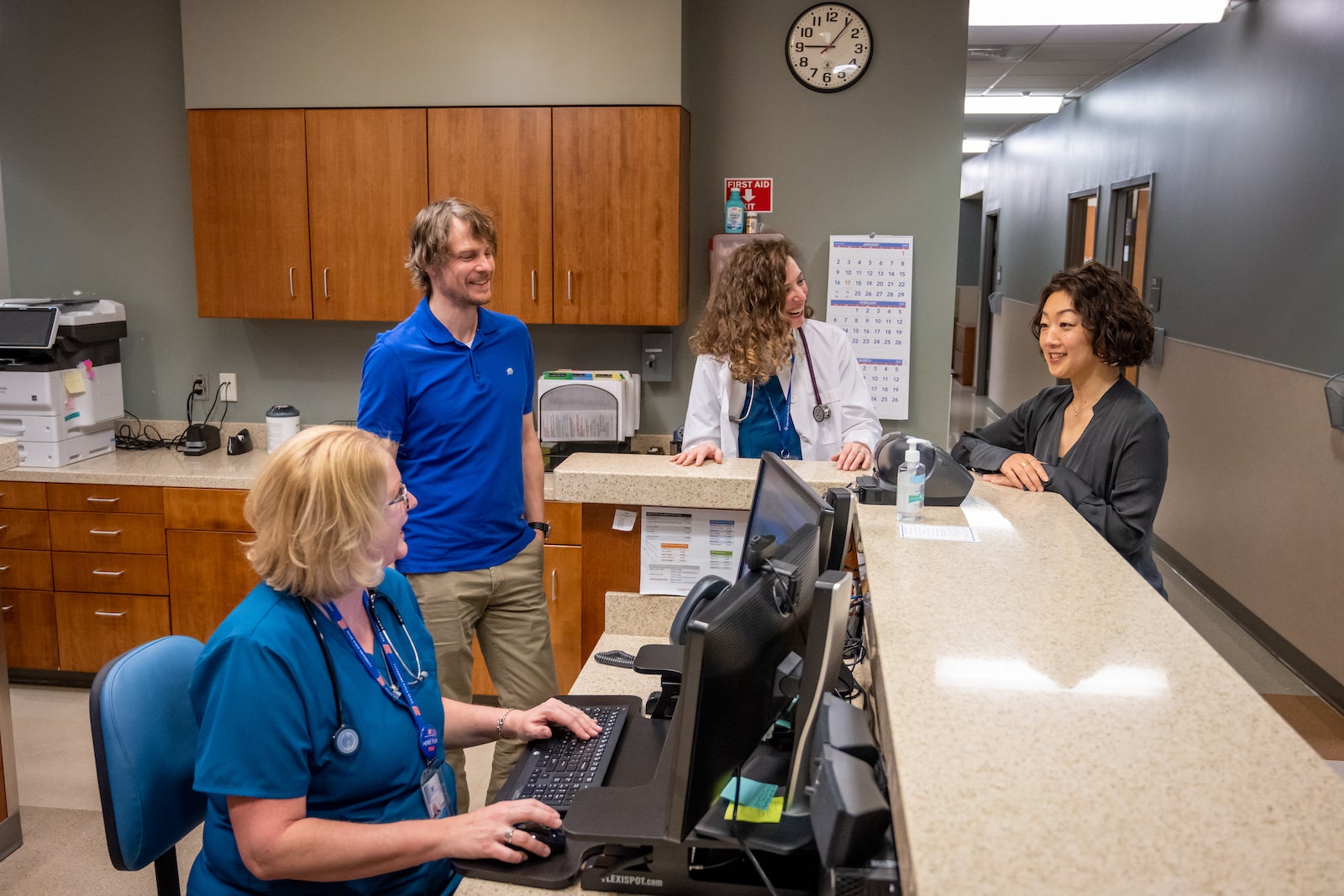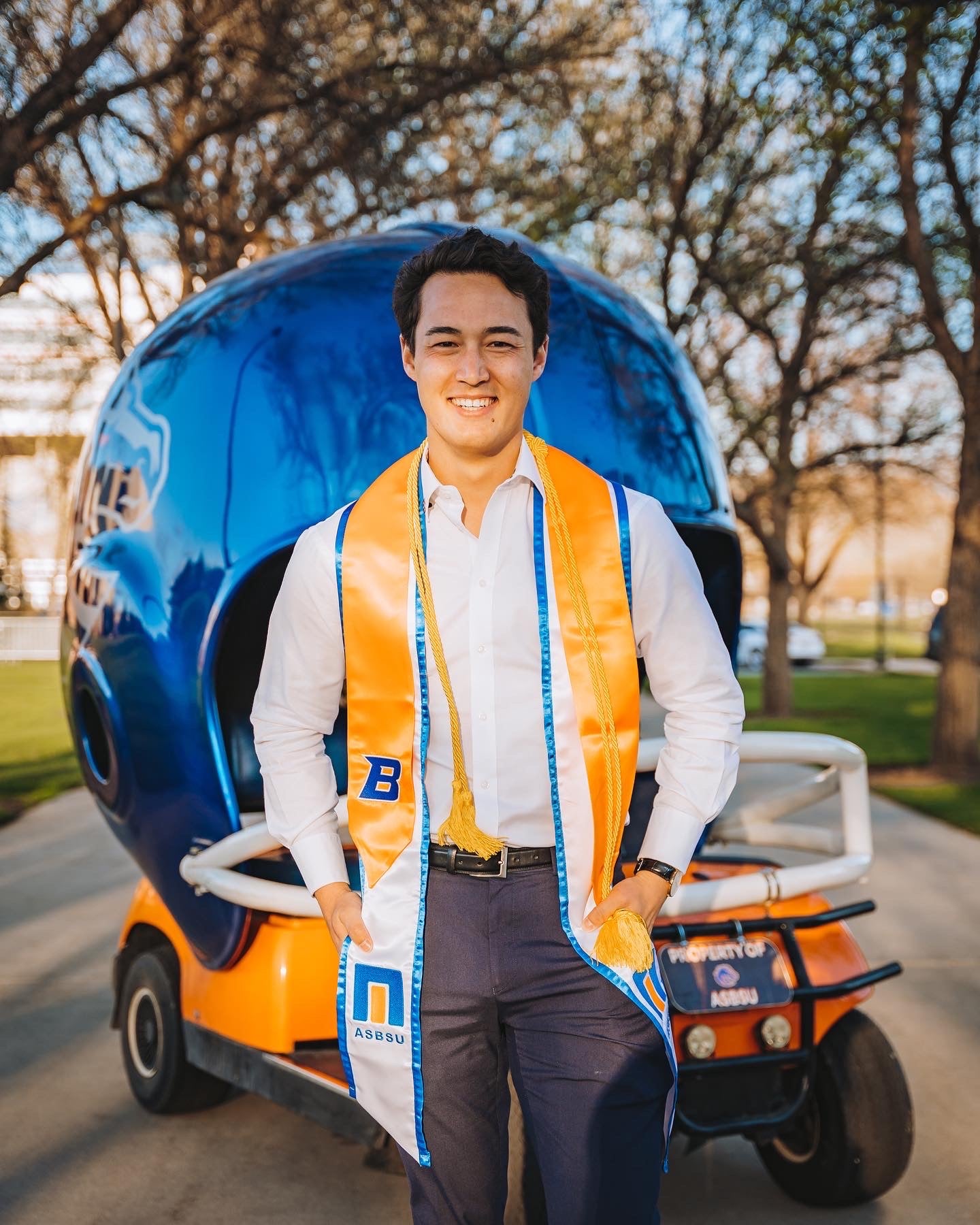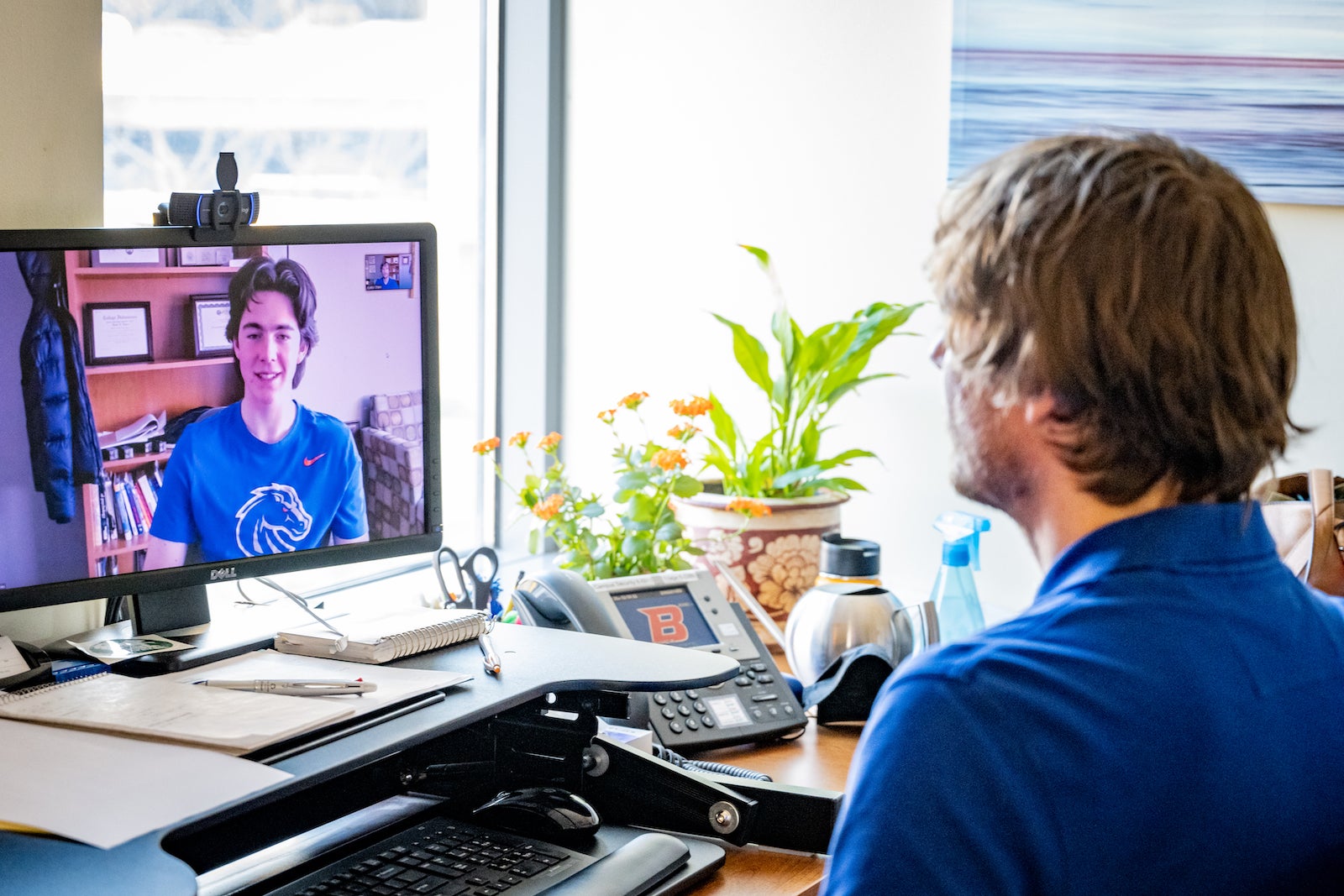
Five new positions in Boise State University Health Services are being filled to strengthen the mental and emotional care support system for the campus community.
And students largely have themselves – and their former student body president Kenneth Huston – to thank.
The counseling and psychiatric nurse practitioner care positions are new, critically needed and in keeping with the efforts being made among multiple departments and offices across campus. Enhanced student well-being, already a goal put forth through the “thriving community” component of the university’s Blueprint for Success strategic plan, is a critical priority given the damaging and lingering effects of the COVID-19 pandemic.
Matt Niece, a Boise State alum who is now the director of the university’s counseling center, is co-facilitator of a three-year suicide prevention grant funded through the Garrett Lee Smith Memorial Act that helps colleges and universities support wellness promotion. His team is expanding with the new fee-funded positions.
According to Niece, the demand for counseling services increased by nearly 40% prior to the pandemic, which led to an increase of 25% more clients.
“Because of that, by spring 2022 our wait times for intakes were pushed out to six weeks at peak season and three to four weeks between intake and return sessions,” he said. “Adding that the new clinicians we received through the student fee increase is increasing our availability by 88 sessions a week when fully staffed, and theoretically decreasing the wait times, at least for the time being.”
Becoming a “JED Campus”
Part of the grant is meant to support the building of a “JED Campus” component within the university. Established by the Jed Foundation, a national nonprofit that works to protect emotional health and prevent suicide among the nation’s young people, JED campuses take part in a multi-year assessment and planning process with the goal of demonstrably changing the state of mental health on college campuses. The JED campus initiative has resulted in a nationwide network of more than 100 university campuses that are assessing and enhancing their mental health, substance misuse and suicide prevention programs and systems to strengthen mental health safety nets.

Significantly, all team members in University Health Services – regardless of role or title – are spending considerable amounts of time on student and faculty members’ mental health needs, said Niece and Julia Beard, executive director of University Health Services. It’s an “all-hands-on-deck” environment.
“Everybody is managing the mental health needs in some fashion,” Beard said. She estimates that a full 40 percent of primary care staff time across roles and positions goes to the care of the campus community’s mental health concerns.
Student support makes a difference
Students themselves, who at times last year were waiting as long as two months to be seen given staffing constraints, could also see that they could be part of the solution. And no student was perhaps more committed to solving the problem than Huston, then the student body president. The staff reinforcements, Niece said, might not have been possible were it not for student involvement and Huston’s very active engagement.
“I think it’s a convergence of things,” Niece commented. “The tipping point was our student body president and students advocating for an increase in student fees. Students understood the need and the value. Mental health is top of mind like never before.”

Huston was a pitbull for his peers, lobbying politicians and the State Board of Education for the positions. Fee increases were approved to now fund the new positions.
“This is a new development for us,” Beard noted. “Student fees historically have paid for operating costs and the programming across campus.”
Huston, she said, “took this very seriously and went to bat for these dollars.”
“It was a pretty substantial jump. It really is a new way of funding positions in a highly volatile situation with these mental health needs,” she added. “We’re really incredibly fortunate that it was taken up that way and was successful.”
The start of a solution
Though wait times are currently down, Niece says there is still work to do. Transports of students to psychiatric hospitals are troublingly high, particularly this early in the academic year.
“The floodgates don’t really open until October, when midterms start to happen,” he said. “It definitely hasn’t gotten better, and it quite possibly has gotten worse.”
Among other factors – two years of conditions that had students studying remotely and often alone, without much contact or settings in which to socialize – has left many with profound feelings of hopelessness and powerlessness.
“There’s a lot of very lonely people, and that was amplified by the pandemic,” Niece said. “It’s nerve-wracking, it’s anxiety-producing.”

“People really slid backwards, and we are seeing the downstream effects of that,” Beard said. “It’s going to take a while.”
Beard and Niece keep their eye on the ratio of appropriate staffing for a university of Boise State’s size, with a reliable rule of thumb being that set by the International Accreditation of Counseling Services, the only accrediting body in the world for professional counseling centers on college campuses. Even with the additional positions, not all of which are filled yet, the accrediting body won’t consider Boise State’s counseling services for accreditation because University Health Services still does not have the number of counselors it would need to do the job required.
Niece is considering how he can extend his staff via additional group services that can help to build community among students and university employees and the like. The JED work continues with actions likely to roll out next year. And Beard, a nursing alum who received both her undergraduate and graduate degrees from Boise State, does the math constantly as the administrator of the programs. She’s the first to say that the new positions are a start; they are not the solution.
“It’s a fix for a while, but the day will come when that won’t be enough,” she said.
Want to support student mental health and well-being? Consider donating here.